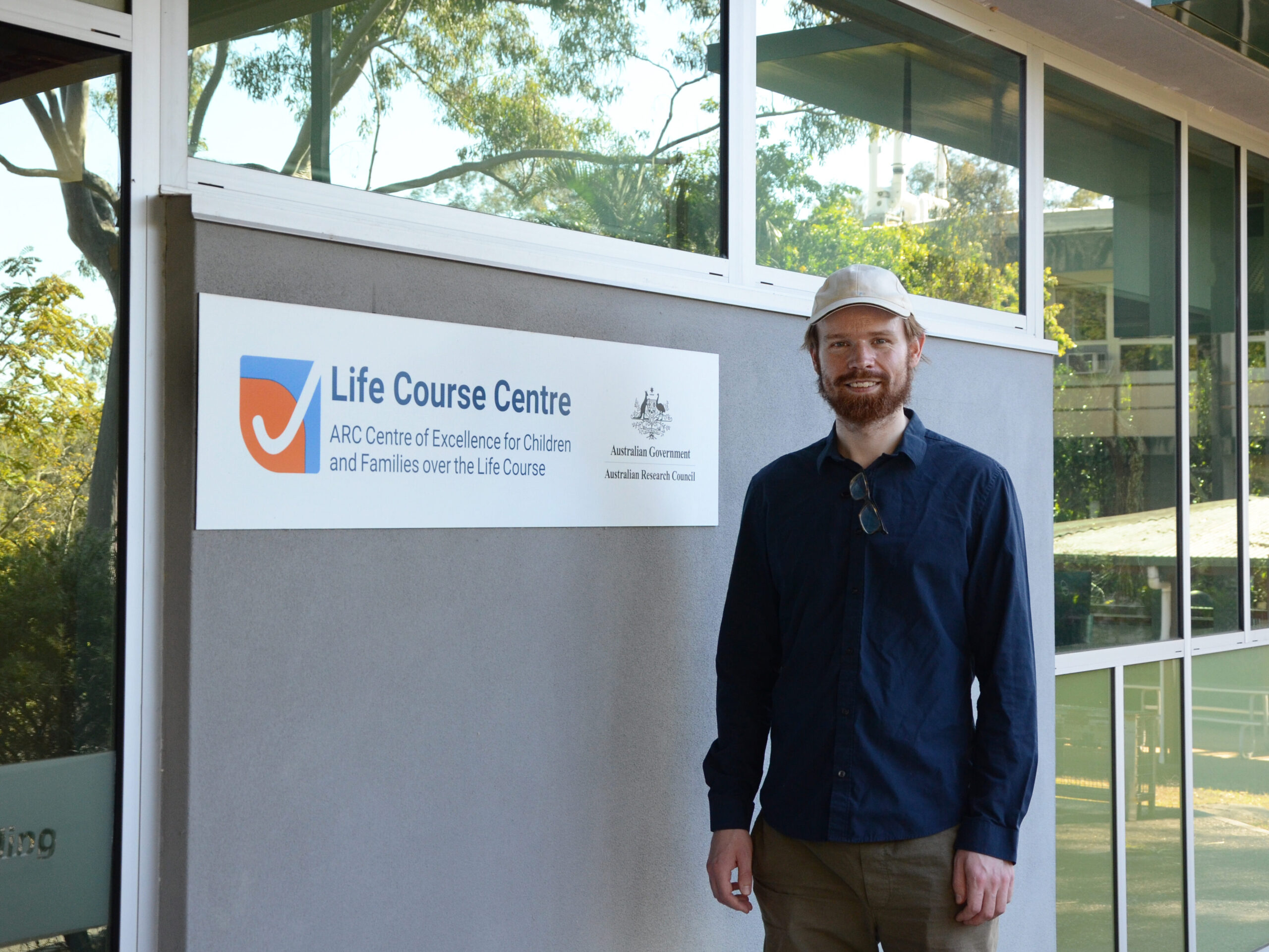The Life Course Centre Working Paper Series helped to bring Magnus Jørgensen from Bergen in Norway to Brisbane in Australia in 2023.
A PhD candidate at the Department of Health Promotion and Development at the University of Bergen, Magnus has research interests in life course epidemiology, in particular the associations between socioeconomic disadvantage in adolescence and adult mental health outcomes.
In researching this field, he came across a Life Course Centre Working Paper ‘Stressful Life Events, Social Support, and Depressive Symptoms in Adolescents: The Mediating Role of School Connectedness’ published by Dr Yanshu Huang and Professor Janeen Baxter in 2021.
His interest in the topic of this paper also led him to discover that it was published by a research centre focussed on a life course approach to addressing inequalities and improving life opportunities.

“I thought, here is a whole centre that is focussed exactly on what I am researching for my PhD and what a huge help it could be in writing my thesis and working directly with leading scholars in this field,” Magnus said.
After reaching out to the Life Course Centre and applying for its visitor program, Magnus found himself on the other side of the world for a two-month visit in mid-2023.
Based at the centre’s University of Queensland node at the Institute for Social Science Research, he worked within Professor Baxter’s family dynamics research team analysing data from the Longitudinal Study of Australian Children (LSAC).
The opportunity to work with, and learn more about, this large dataset that follows the life course development of more than 10,000 Australian children was another major attraction for Magnus.
“This is a really fantastic and up-to-date dataset, with a lot of interesting variables and scales, and for me to work with Janeen and fellow Life Course Centre researchers Jack and Martin has been so valuable and inspiring,” he said.

In Norway, Magnus is associated with the LONGTRENDS project that is investigating how adolescent socioeconomic inequality impacts disparities in mental health throughout the life course.
He said research focused on adolescence as a critical life course period for addressing the long-term health impacts of disadvantage was a growing area of interest for policymakers in Norway, and Europe more broadly.
“Governments recognise that early intervention is key and that’s why these studies are so important,” Magnus said. “Though people aren’t determined fully by their social background, it certainly plays a large role in shaping their health both short and long-term, so if we can find ways to intervene early on, we can potentially reduce a lot of the individual and societal costs related to mental health and labour market participation that otherwise risk compounding over time.”
Magnus enjoyed his time at UQ’s leafy Long Pocket campus and also had the opportunity to visit the Life Course Centre’s nodes at the University of Melbourne and University of Sydney.
“I have really enjoyed my time in Australia. Everyone has been very friendly and I am looking forward to staying in contact,” he said.
Find out more about the Life Course Centre Working Paper Series here.